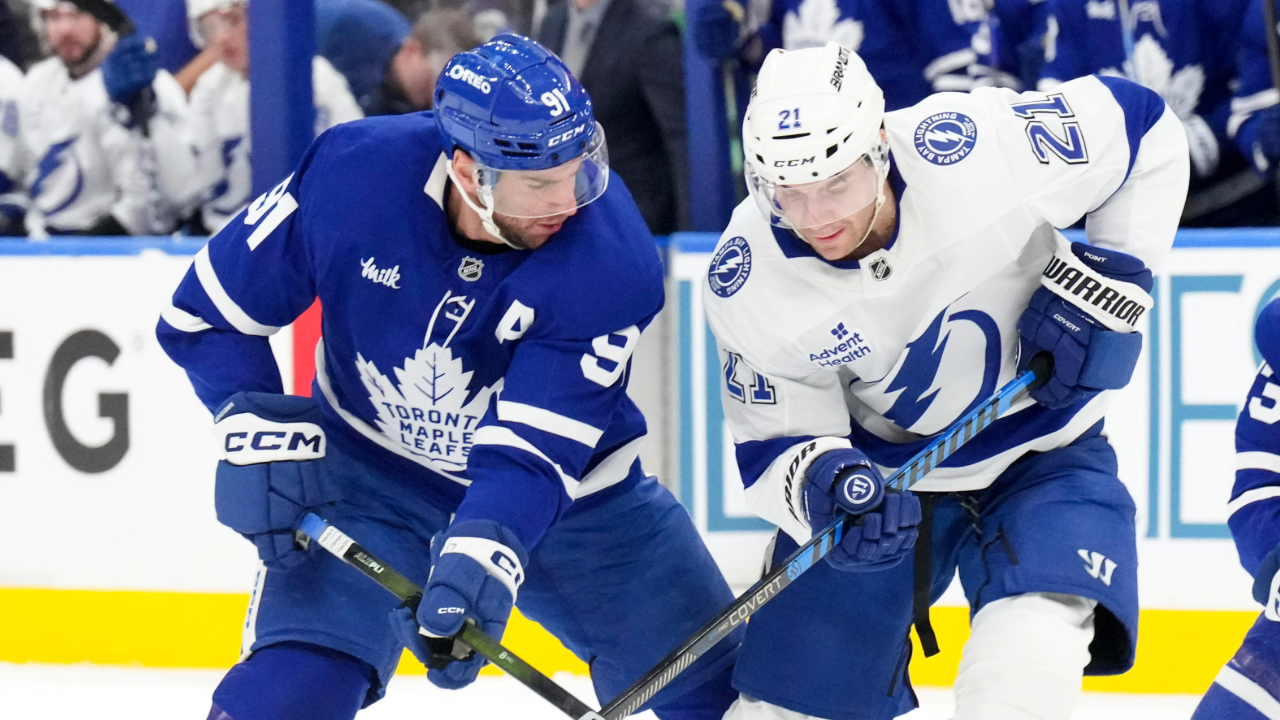
There’s no joy in being “that guy.”
You know, the one who jumps on the Zoom call hours after the NHL announced a series of agreements that could see the Stanley Cup handed out during a pandemic to ask what it might take to derail that exciting possibility.
But it’s a pressing concern. Major League Soccer had to go ahead with its summer tournament down two teams — FC Dallas and Nashville SC — because of a rash of positive COVID-19 tests. The NHL is dealing with its own set of growing positives, as teams prepare to open training camp on Monday, and it will likely walk a tightrope until they each travel to bubbles in Edmonton and Toronto on July 26.
The league conducted a two-hour information call with general managers on Saturday but was vague when it came to the question of a doomsday scenario. The message was that the 24-team tournament would only be shut down if doctors felt the virus had spiralled out of control among the NHL population, rather than being tied to “X” number of positive tests.
Afterward, when your trusted representative put the question to commissioner Gary Bettman and deputy commissioner Bill Daly — inadvertently having the camera turned on during the Zoom call while in a more casual setting than the league and NHLPA bosses — details were no more forthcoming.
“The fact is we’re going to be taking advice from the experts, the medical people, in terms of what is and isn’t appropriate as we move forward and understanding that COVID-19’s out there and what the risks are,” Bettman said.
“Nothing more than that,” Daly added. “Obviously, we’re all living day-to-day here and we’ll see what happens.”
At the risk of looking too far ahead, the coming days will be a challenge. The NHL has instituted a mandate that prevents teams from disclosing any injury information about players in an effort to shield those dealing with the coronavirus from added scrutiny.
Who knew we’d ever pine for the days of the announced upper-body or lower-body injury?
It’s arguably the only reasonable way to protect privacy, but it certainly won’t quiet speculation when a player is nowhere to be found on the ice during training camp.
Where this gets complicated is the many reasons why it matters.
For starters, an outbreak could force the cancellation of the playoffs. Or maybe it sees a team removed from the competition, although no clear indication was provided from the NHL brass when asked if they’d consider following the lead of MLS.
While it’s understandable why players feel they value and deserve discretion — “It was high priority for guys, no question,” said Mathieu Schneider, the NHLPA’s special assistant to executive director Donald Fehr — there’s a certain public trust involved with this entire endeavour, too.
The NHL announced 35 positive tests from June 8 to July 6 and will update that number again soon. But it doesn’t intend to identify specific teams that might be dealing with a spread.
“The media and the public will know what kind of situation we’re in, but we don’t want to be in a situation where we’re doing it on a club-by-club basis or a player-by-player basis because I think the interests of medical privacy are important and we’re going to protect them,” Daly said.
Schneider likened this undertaking to going to Mars for the first time. There is much to learn and adjustments will be required once teams move into the secure zones in hub cities.
Not only is there concern about keeping the virus from infiltrating shared spaces, but there is worry about the possibility of false positive tests — which could knock a player with no symptoms out of Game 7 in a playoff series.
On some level, these are realities that simply need to be accepted to resume sports at this moment in time.
The NHL has done a first-class job in leading the way during unimaginably tough times. It has secured a six-year agreement on a collective bargaining agreement and got to a point where five games are scheduled to be played on Aug. 1.
And yet, despite all that, nothing is guaranteed. Bettman channelled Winston Churchill by saying that they have merely reached the “end of the beginning.”
The virus poses an ever-present danger to their best-laid plans.






